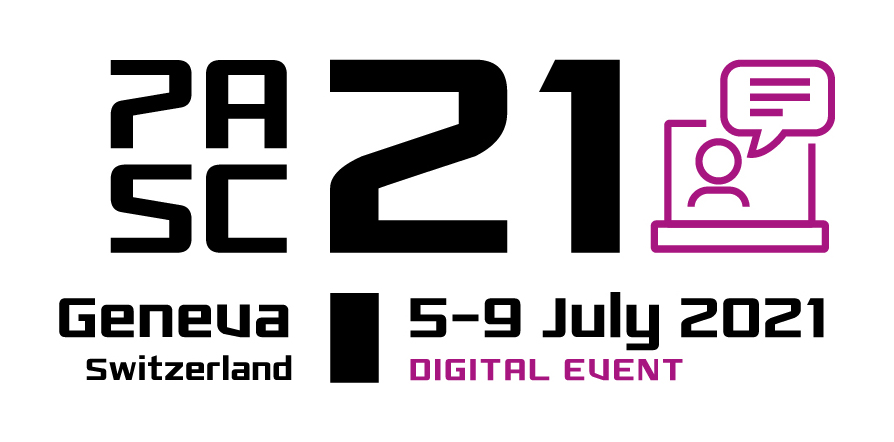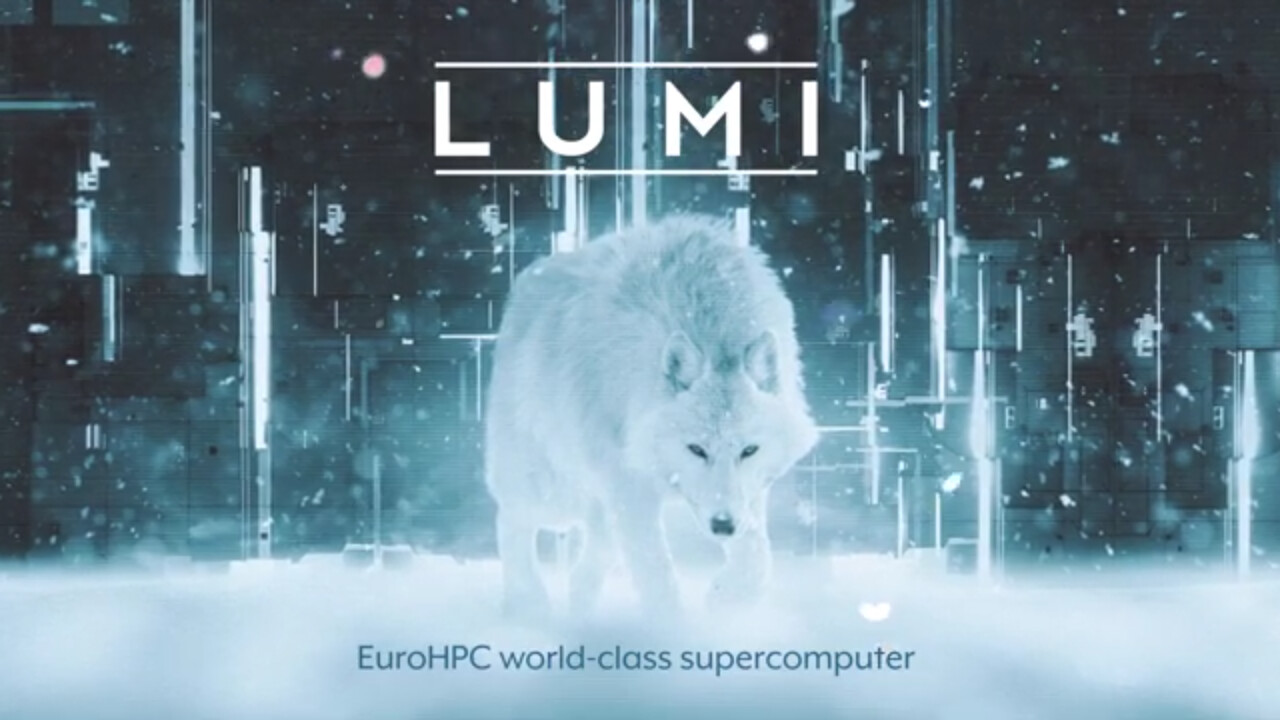PASC21 Event Format and Papers Program
PASC21 is going fully digital
Unfortunately, given the current epidemiologic situation, we have decided to host the PASC21 Conference in a fully digital format.
We are currently in the process of finalizing the program for the conference and, in order to allow more international participants to follow the event live, we decided to shorten the daily programmatic offering and lengthen the event to five days. We look forward to welcoming you to the first PASC Digital Conference to be held from July 5 to 9, 2021.
During this week, we are preparing to bring Geneva into your homes between 11:00 and 19:00 (Central European Time) with an inspiring HPC program composed of keynote presentations, papers, minisymposia, posters, a dialogueand a panel featuring interdisciplinary experts from all over the world.
A full program of the conference will be published mid-May. Registration will open in the beginning of May.
Papers to be presented at PASC21
As an anticipation of the rich program, we are delighted to announce that the following papers have been accepted for PASC21 and will be published in the Proceedings of the PASC Conference. We are looking forward to hosting these talks at PASC21.
- Accelerating Parallel CFD Codes on Modern Vector Processors Using Blockettes
Authors(s): Anil Yildirim, Charles Mader, and Joaquim Martins - Accurate and Efficient Jones-Worland Spectral Transforms for Planetary Applications
Authors(s): Philippe Marti, and Andrew Jackson - Algorithm-Hardware Co-Design of a Discontinuous Galerkin Shallow-Water Model for a Dataflow Architecture on FPGA
Authors(s): Tobias Kenter, Adesh Shambhu, Sara Faghih-Naini, and Vadym Aizinger - Ensuring Statistical Reproducibility of Ocean Model Simulations in the Age of Hybrid Computing
Authors(s): Salil Mahajan - Fast Scalable Implicit Solver with Convergence of Equation-Based Modeling and Data-Driven Learning: Earthquake City Simulation on Low-Order Unstructured Finite Element
Authors(s): Tsuyoshi Ichimura, Kohei Fujita, Kentaro Koyama, Yuma Kikuchi, Ryota Kusakabe, Kazuo Minami, Hikaru Inoue, Seiya Nishizawa, Miwako Tsuji, Tatsuo Nishiki, Muneo Hori, Lalith Maddegedara, and Naonori Ueda - In-Situ Assessment of Device-Side Compute Work for Dynamic Load Balancing in a GPU-Accelerated PIC Code
Authors(s): Michael Rowan, Axel Huebl, Kevin Gott, Jack Deslippe, Maxence Thévenet, Rémi Lehe, and Jean-Luc Vay - Memory Reduction Using a Ring Abstraction over GPU RDMA for Distributed Quantum Monte Carlo Solver
Authors(s): Weile Wei, Eduardo D’Azevedo, Kevin Huck, Arghya Chatterjee, Oscar Hernandez, and Hartmut Kaiser - Performance Optimization and Load-Balancing Modeling for Superparametrization by 3D LES
Authors(s): Gijs van den Oord, Maria Chertova, Fredrik Jansson, Inti Pelupessy, Anne Pier Siebesma, and Daan Crommelin - Predictive, Reactive and Replication-based Load Balancing of Tasks in Chameleon and sam(oa)2
Authors(s): Philipp Samfass, Jannis Klinkenberg, Minh Thanh Chung, and Michael Bader - Progress Towards Accelerating the Unified Model on Hybrid Multi-Core Systems
Authors(s): Wei Zhang, Min Xu, Katherine Evans, Matthew Norman, Mario Morales-Hernandez, Salil Mahajan, Adrian Hill, James Manners, Ben Shipway, and Maynard Christopher - Refactoring the MPS/University of Chicago Radiative MHD (MURaM) Model for GPU/CPU Performance Portability Using OpenACC Directives
Authors(s): Eric Wright, Damien Przybylski, Cena Miller, Supreeth Suresh, Matthias Rempel, Shiquan Su, Richard Loft, and Sunita Chandrasekaran - Scalable HPC & AI Infrastructure for COVID-19 Therapeutics
Authors(s): Shantenu Jha - Simulation of Droplet Dispersion in COVID-19 Type Pandemics on Fugaku
Authors(s): Rahul Bale, ChungGang Li, Masashi Yamakawa, Akiyoshi Iida, Ryoichi Kurose, and Makoto Tsubokura - Solving DWF Dirac Equation Using Multi-splitting Preconditioned Conjugate Gradient with Tensor Cores on NVIDIA GPUs
Authors(s): Jiqun Tu, M. A. Clark, Chulwoo Jung, and Robert Mawhinney - Stream-AI-MD: Streaming AI-driven Adaptive Molecular Simulations for Heterogeneous Computing Platforms
Authors(s): Alexander Brace, Michael Salim, Vishal Subbiah, Heng Ma, Murali Emani, Anda Trifan, Austin Clyde, Corey Adams, Thomas Uram, Hyunseung Yoo, Andrew Hock, Jessica Liu, Venkatram Vishwanath, and Arvind Ramanathan - A Task-Based Distributed Parallel Sparsified Nested Dissection Algorithm
Authors(s): Leopold Cambier, and Eric Darve - X-Composer: Enabling Cross-Environments In-Situ Workflows between HPC and Cloud
Authors(s): Feng Li, Dali Wang, Yan Feng, and Fengguang Song
These papers will be presented along with a subset of those that were accepted for the postponed PASC20 conference, and that will likewise be presented at PASC21:
- A Smoothed Particle Hydrodynamics Mini-App for Exascale
Authors(s): Aurélien Cavelan, Rubén M. Cabezón, Michal Grabarczyk, and Florina M. Ciorba - Aphros: High Performance Software for Multiphase Flows with Large Scale Bubble and Drop Clusters
Authors(s): Petr Karnakov, Fabian Wermelinger, Sergey Litvinov, and Petros Koumoutsakos - Automatic Generation of Efficient Linear Algebra Programs
Authors(s): Henrik Barthels, Christos Psarras, and Paolo Bientinesi - Benchmarking of state-of-the-art HPC Clusters with a Production CFD Code
Authors(s): Fabio Banchelli, Marta Garcia-Gasulla, Guillaume Houzeaux, and Filippo Mantovani - Deploying Scientific Al Networks at Petaflop Scale on Secure Large Scale HPC Production Systems with Containers
Authors(s): David Brayford and Sofia Vallecorsa - Evaluating the Influence of Hemorheological Parameters on Circulating Tumor Cell Trajectory and Simulation Time
Authors(s): Sayan Roychowdhury, John Gounley, and Amanda Randles - Eventify: Event-Based Task Parallelism for Strong Scaling
Authors(s): David Haensel, Laura Morgenstern, Andreas Beckmann, Ivo Kabadshow, and Holger Dachsel - Extreme-Scale Task-Based Cholesky Factorization Toward Climate and Weather Prediction Applications
Authors(s): Qinglei Cao, Yu Pei, Kadir Akbudak, Aleksandr Mikhalev, George Bosilca, Hatem Ltaief, David Keyes, and Jack Dongarra - k-Dispatch: A Workflow Management System for the Automated Execution of Biomedical Ultrasound Simulations on Remote Computing Resources
Authors(s): Marta Jaros, Bradley E. Treeby, Panayiotis Georgiou, and Jiri Jaros - Load Balancing in Large Scale Bayesian Inference
Authors(s): Daniel Wälchli, Sergio M. Martin, Athena Economides, Lucas Amoudruz, George Arampatzis, Xin Bian, and Petros Koumoutsakos - Massive Scaling of MASSIF: Algorithm Development and Analysis for Simulation on GPUs
Authors(s): Anuva Kulkarni, Jelena Kovačević, and Franz Franchetti - Performance Evaluation of a Two-Dimensional Flood Model on Heterogeneous High-Performance Computing Architectures (Best Paper Award for PASC20)
Authors(s): Md Bulbul Sharif, Sheikh K. Ghafoor, Thomas M. Hines, Mario Morales-Hernändez, Katherine J. Evans, Shih-Chieh Kao, Alfred J. Kalyanapu, Tigstu T. Dullo, and Sudershan Gangrade - Urgent Supercomputing of Earthquakes: Use Case for Civil Protection
Authors(s): Josep de la Puente, Juan Esteban Rodriguez, Marisol Monterrubio-Velasco, Otilio Rojas, and Arnau Folch
Abstracts of the papers to be presented at PASC21 are available at: pasc21.pasc-conference.org/program/papers/
LUMI: message from Finland
LUMI, a EuroHPC pre-exascale supercomputer, will be one of the world’s best-known scientific instruments for the lifespan of 2021–2026. The supercomputer is hosted by the ten LUMI consortium countries and will be located at CSC’s data center in Kajaani, Finland.
Discover more: lumi-supercomputer.eu/lumi-world-class-supercomputer/
This message has been sponsored by LUMI – official sponsor of PASC21.


